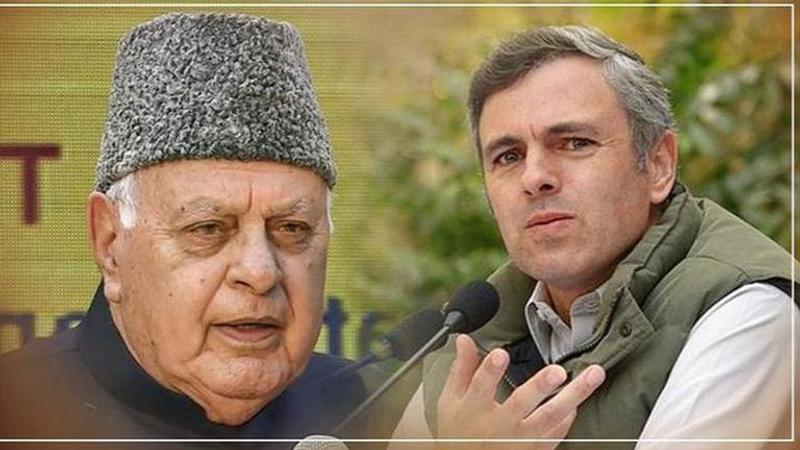Published 15:37 IST, September 13th 2019
J&K: High Court Allows Party Members to meet Omar and Farooq Abdullah
High Court has permitted two Members of Parliament (MP) of the J&K National Conference (JKNC) party to meet Omar and Farooq Abdullah who are under house arrest.

The High Court of Jammu and Kashmir has permitted two Members of Parliament (MP) of the J&K National Conference (JKNC) party to meet Omar Abdullah and Farooq Abdullah but has imposed some restrictions on them. The HC has prohibited the MPs from talking to media after they have met the leader of the JKNC. A petition was filed claiming the two leaders of being under house arrest since the abrogation of Article 370. The petitioners said they were worried about the well-being of Omar and Farooq Abdullah.
'No Formal Restrictions From Meeting Party Leaders'
In a hearing in the court, it was found out by the Additional Advocate General, Javed Iqbal and the Advocate General, DC Raina that the petitioners were not restricted from meeting their party leaders. “The meeting shall be related to a courtesy call and to know about the well being of the persons under detention. After the meeting, the petitioners shall not go the press to share details and deliberations with the detained leaders,” the court said regarding the meeting with Omar and Farooq Abdullah.
Justice Kumar has asked the meeting to take place during the present week. “It would be appropriate if the petitioners are permitted to meet the aforesaid persons separately on different occasions, either on the same day or on different days,” Justice Kumar said. The court order also said, “In short it was [the] submission of learned Advocate General that the State may not be averse to the meeting of petitioners with their President and Vice President, provided petitioners ensure that they would not do anything aimed at vitiating the peaceful atmosphere.”
Read: J&K's Article 370 Scrapped: Omar Abdullah, Mehbooba Mufti To Remain In Detention Say MHA Sources
Abrogation of Article 370
Article 370 of the Indian Constitution is a 'temporary provision' which grants autonomous, special status to the state. Article 370 was revoked in Jammu and Kashmir, making them a part of India on August 5 and removing the special status granted to the state. The bill was passed by the Parliament approving the Jammu and Kashmir and Ladakh being given the status of Union Territories of India.
As per the provisions of the article, the Parliament needs the state government's concurrence for applying laws except for defence, foreign affairs, communications and finance. Hence, the residents of the state live under a separate set of laws, including citizenship, ownership of property, and fundamental rights, in comparison to the rest of India.
Updated 17:05 IST, September 13th 2019




